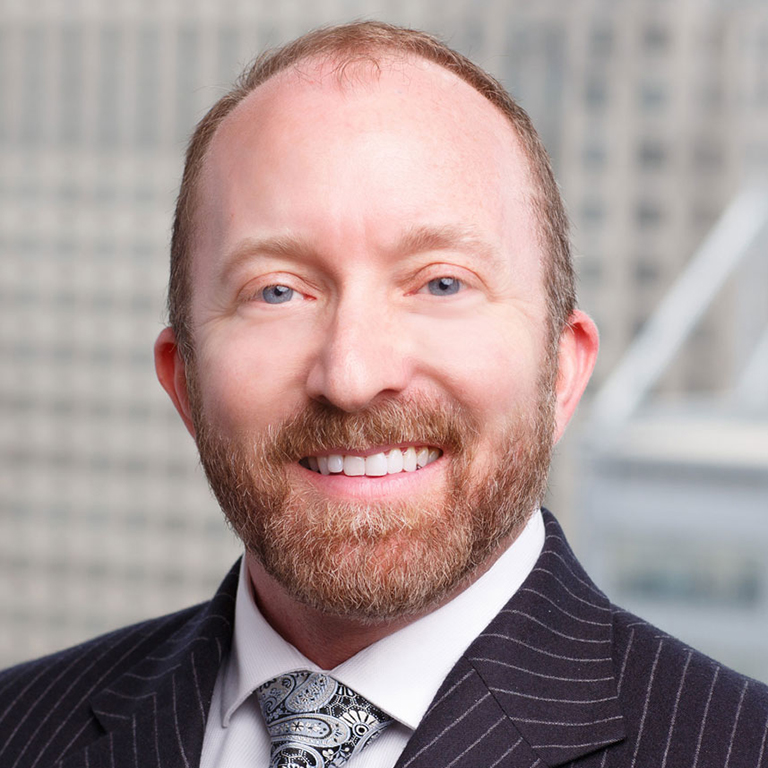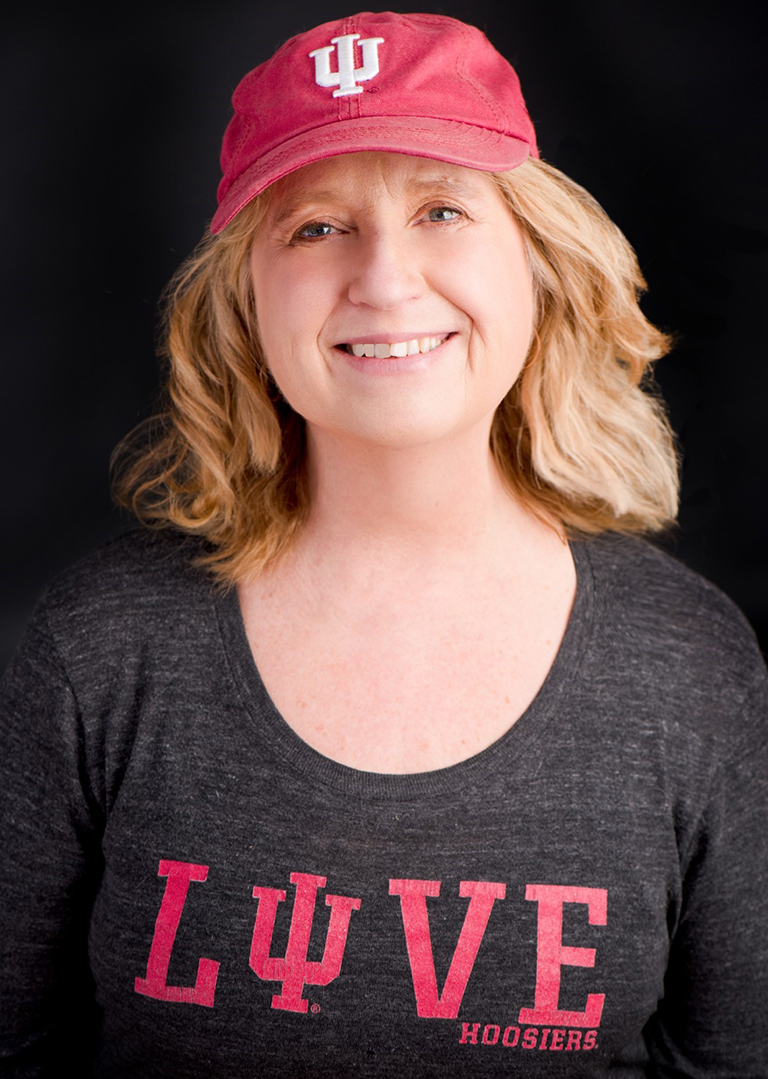Liz Grauerholz (M.A. 1981, Ph.D. 1985) is Professor of Sociology at University of Central Florida. She lives in Gainesville, FL, with her husband David, two dogs and one cat, and is looking forward to retirement in the near future.
Mark Hayward (Ph.D. 1981) Mark is a professor of sociology at the University of Texas at Austin. He is the current editor of Demography. Supported by grants from the National Institute on Aging, much of his current research uses a demographic lens to examine trends and disparities in dementia among older Americans. He is currently a member of a study committee conducting a Decadal Survey of Behavioral and Social Science Research on Alzheimer's Disease and Alzheimer's Disease-Related Dementias at the National Academies of Engineering, Sciences and Medicine.
Larry W. Isaac (Ph.D. 1979) After finishing the BS and MA at University of Akron, I was fortunate to start the Ph.D. program at IU in 1974. Prior to that I had a blue-collar career in several machine shops, an iron foundry, a rubber reclamation factory, and a stint as a gandy dancer. I prefer the life of sociology professor.
I started my career at Florida State University where I moved through the ranks to become the Mildred & Claude Pepper Distinguished Professor. Judy (my wife) and I finished raising our two lovely children, Shane and Rachael, in Tallahassee, a task that started in Akron and Bloomington while we were students. We moved to Vanderbilt in 2004.
At Vanderbilt, I currently hold the titles of: Gertrude Conaway Vanderbilt Endowed Chair in Sociology and Political Economy, Professor of American Studies, and Sociology Department Chair (and Religious Studies Interim Chair). I am the past editor of the American Sociological Review (2010-2015), past president of the Southern Sociological Society, and elected member of the Sociological Research Association (research honorary). I have published numerous articles at the intersection of political sociology/political economy, civil rights and labor movements, and social-historical change. My work has been the recipient of awards from American Sociological Association sections on Comparative-Historical Sociology, Cultural Sociology, and Labor Movements, as well as from the Southern Sociological Society, ASA/NSF Advancement of the Discipline Fund, and National Endowment for the Humanities. I also served in an advisory capacity for the American Sociological Association, National Science Foundation, National Endowment for the Humanities, and lectured abroad at a variety of universities including Vienna, Lisbon, Florence, Amsterdam, Sciences Po Institut d' Etudes Politiques de Paris, Buenos Aires, Toronto, Glasgow-Caledonia, and Oxford. I have been the recipient of seven teaching awards, the Southern Sociological Society's Distinguished Lecturer Award, and was recently a Distinguished Visiting Fellow at Dartmouth College. I was highly honored to give the Grimshaw Distinguished Lecture at IU in 2012. One of the biggest thrills of my career came with the special opportunity to interview dozens of survivors of the pivotal Nashville civil rights movement. From this experience grew my friendship with James M. Lawson, Jr., celebrated southern civil rights movement intellectual, leader, and major tactician. I am currently working on a co-authored book (with Lawson and two other Vandy colleagues) about the development and importance of the Nashville civil rights movement.
My sincere thanks to Indiana University Sociology for taking a chance on this first-gen working-class kid.
As of Spring 2021: After a year of living dangerously and being sucked into the Zoom vortex, this summer I step down from serving two terms as department chair at Vanderbilt. Following six years of editing ASR (now at IU—congratulations!!) and another six years as department chair, I am looking forward to my first research leave in quite some time. For a healthy dose of diversion, I can always rely on our two-year old English white lab ("Abby"), who lovingly knocks us around to be sure we keep our sanity during tough times.
Recent Abby-assisted writing includes:
"Social Movement Schools: Sites for Consciousness Transformation, Training, and Prefigurative Social Development." Social Movement Studies (2020). (w/ Anna Jacobs, Jaime Kucinskas, Allison McGrath).
"Pathways to Modes of Movement Participation: Micro-mobilization in the Nashville Civil Rights Movement." Social Forces (2020). (w/ Jonathan Coley, Dan Cornfield, Dennis Dickerson).
"The Making of a Movement: An Intergenerational Mobilization Model of the Nonviolent Nashville Civil Rights Movement." Social Science History (In press, 2021). (w/ Dan Cornfield, Jonathan Coley, Dennis Dickerson).
"Social Movements as Schooling for Careers: Career Consequences of the Nashville Civil Rights Movement." Social Movement Studies (forthcoming). (w/ Jonathan Coley, Dan Cornfield, Dennis Dickerson).
"Pitting the Working-Class Against Itself: Solidarity, Strikebreaking, and Strike Outcomes in the Early U.S. Labor Movement." Social Science History (forthcoming). (w/ Rachel McKane, Anna Jacobs).
"Learning from the Nashville Model of Social Change." Op-ed in Los Angeles Times, March 28, 2021. (w/ Dan Cornfield, Dennis Dickerson, James M. Lawson, Jr.).
Joe Johnston (Ph.D. 2015) I feel deeply fortunate to have received tenure and promotion to associate professor in the Department of Sociology & Criminology at Gonzaga University in Spokane, WA. I am on sabbatical for the 21-22 academic year.
Ann Marie Kinnell (Ph.D. 1997) Director, School of Interdisciplinary Studies and Professional Development; Coordinator, Nonprofit Studies program; Associate Professor of Sociology, The University of Southern Mississippi.
Gary LaFree (B.A. 1973, M.A. 1975 and Ph.D. 1979) From a professional standpoint, I was honored this year to receive the Sutherland Award from the American Society of Criminology. I will deliver the Sutherland address this November at the annual meetings in Chicago. Especially gratifying since I took classes at IU from some of Sutherland's students and associates, including Alfred Lindesmith and Karl Schuessler. I also remember studying in what was once called the "Sutherland Library"—which I understand no longer exists. And from a personal standpoint, very pleased to welcome to the world my fourth grandchild—Lincoln.
Dana Lee Miroballi (B.A. 1992, JD 1995) During the past year during COVID, I changed jobs and our family got a puppy after our 15 1/2 year old dog (Trotter) passed away during COVID in March 2020.
On April 1, 2020, I became the Assistant General Counsel at the American Osteopathic Association ("AOA"). The AOA represent osteopathic physicians (aka DOs).
My husband, David Firkin, and I have two children, Luke (almost 12 years old) and Tyler (10 years old). Our dog, Copper, joined the family in August 2020. We moved from the Washington, DC area in June 2017 back to my roots, the northwest suburbs of Chicago (after I lived and worked in Washington for almost 17 years at the American Medical Association and the U.S. Department of Justice).
Alexander Lu (Ph.D. 2015) After graduating, I accepted a post-doc with the Health Equity Institute at San Francisco State University (2015-16), then I took a position as Assistant Professor of Sociology at Francis Marion University (2016-19). I changed to a career in market research, starting as a Content Analyst at Hanover Research (2019-20). I am currently employed as Director of Research at Group Five (2020-present), a market research company specializing in financial service providers.
Keri Lubell (M.A. 1994, Ph.D. 2001) I worked mainly with Bernice and Jane McLeod. I'd be happy to share about my experience working in emergency communication for the US Centers for Disease Control and Prevention (CDC). I have been on the COVID-19 response since the pandemic started in late-2019 and am part of the agency's permanent emergency response staff. I've been at the CDC for 23 years and worked in suicide prevention for ~10 years before moving to emergency risk communication about 13 years ago. As you can imagine, COVID has been the largest response the agency has ever undertaken and we had to ride out the politics of the previous administration to protect people. It's been rough. And we know we are not done yet, even as people start to emerge from where we've all been for the past 18 months.
Kathleen (Casey) Oberlin (Ph.D. 2014) Pivoting into industry after working as an Assistant Professor of Sociology at Grinnell College, Kathleen "Casey" Oberlin is now a senior level mixed methods researcher in UX (user research) at Facebook. She's permanently remote and based out of Chicago. In her new role, she explores ways to improve users' experiences with technology and works with a multidisciplinary team of designers, engineers, and other researchers to bring new concepts to life. In 2020, she also published her first manuscript, Creating the Creation Museum: How Fundamentalists Beliefs Come to Life (NYU Press), based on her IU dissertation fieldwork.
Melissa Quintela (Ph.D. 2010) I've just had my 5 year anniversary as a faculty member with Western Governors University, where I also serve as Director of Professional Development for our Employee Resource Group. Personally, I've been doing some playing in a band and have recently been featured in a documentary on Amazon Prime, "The Human Project" (mine is episode 3: Your Brain on Drums).
https://www.amazon.com/Human-Project/dp/B08DL6BKMW
Larry Raffalovich (Ph.D. 1987) My wife & I both retired on January 1, 2013; she as a school nurse in the Albany, NY school system, I as Associate Professor of Sociology at the University at Albany, SUNY. We live in a retirement community in Slingerlands, just outside of Albany.
Stephen Harold Riggins (B.A. 1968, M.A. 1972) is a retired professor of sociology. He taught for 25 years at Memorial University of Newfoundland and Labrador and briefly at the Universities of Alberta, Toronto, and Laurentian. His co-edited book Canadian Sociology in the First Person (forthcoming August 2021, McGill-Queen's University Press) is the pioneer collection of autobiographies by Canadian sociologists. Riggins' chapter includes sketches of IU sociologists who were his teachers in the 1960s. He is the author of The Pleasures of Time: Two Men, a Life (Insomniac Press, 2003), which is primarily about living in Paris in the 1970s and 80s; and co-editor of Creating a University: The Newfoundland Experience (ISER Books 2019). Sage published his edited books, The Language and Politics of Exclusion: Others in Discourse (1997) and Ethnic Minority Media: An International Perspective (1992). Mouton de Gruyter published his edited books The Socialness of Things: Essays on the Socio-semiotics of Objects (1994) and Beyond Goffman: Studies on Communication, Institution, and Social Interaction (1990). Riggins may have organized the first symposium on the intellectual legacy of Erving Goffman, which was held outside Goffman's standard domain of North America. In 2009, he was a recipient of the Award for Outstanding Service to the Canadian Sociological Association. He is currently writing a book about the poetry of Richard Brooks Hendrickson, a recently deceased resident of Bloomington.
Jenny Stuber (Ph.D. 2006) has been promoted to Full Professor of Sociology at the University of North Florida. She also published her new book, Aspen and the American Dream: How one Community Manages Inequality in the Era of Supergentrification, with University of California Press.
Lisa J. Thomassen (Ph.D. 1996) Promoted to full in the first cohort of Teaching Professors at Indiana University, where I also serve as the inaugural Director of Undergraduate Engagement.
Clay Thomas (Ph.D. 2021) I started my job as an Assistant Teaching Professor in the Department of Management and Entrepreneurship at Iowa State University. I was hired to build from scratch a Healthcare Management major and teach courses within it.
Christy A. Visher (Ph.D. 1982), Professor of Sociology and Criminal Justice and Director of the Center for Drug and Health Studies at the University of Delaware, was named to the National Academies Committee on Evaluating Success Among People Released from Prison. The Committee will review and analyze the strengths and limitations of current measures of recidivism and consider broader measures of success for use by researchers and policymakers. The Committee will issue its report in early 2022.



 The College of Arts
The College of Arts